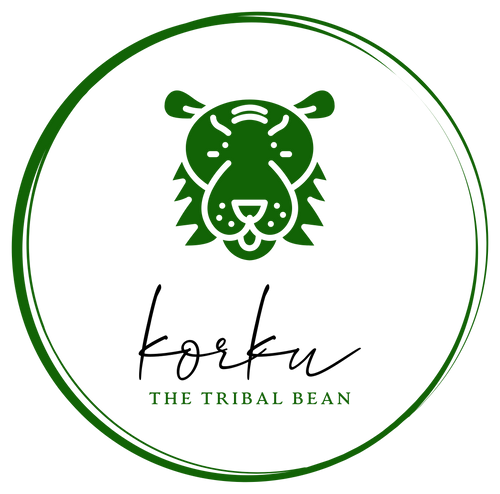Why Korku Coffee?
Coffee cultivation in Chikhaldara is primarily concentrated in the areas surrounding the hills, which are situated at an altitude of 3,500 to 4,000 feet above sea level. The region's cool and misty climate, combined with the well-drained red soil, is ideal for the cultivation of high-quality coffee. Falling under the Melghat Tiger Reserve, the organic coffee grown here is not subjected to unnecessary human interaction and the production is carried out by small
farmers only.
Our Robusta variety of coffee carries a strong flavour and high caffeine content. This is mainly owing to the region’s hot and humid climate and well-drained soil conditions. Our specialty coffee is produced by small farmers who own small plots of land. This makes our coffee micro-lot, that means you can source the origin of each and every bean, a rare feat for any organic coffee brand. The traditional methods of coffee cultivation, that involve intercropping coffee with other crops such as pepper, cardamom, etc, and manually roasting
and treating the bean with care and respect, makes us stand out among our competitors. This helps to increase the income of farmers and also provides shade for coffee cultivation.
What is Korku ?
Our brand name originates from one of the largest tribes of the Chikhaldara region, the ‘Korkus’ and is also homonymous to their language. Known for their unique cultural heritage, that includes music, dance, and cultural art forms, the Korku tribe is also well known for adopting eco-friendly craft techniques utilising locally-sourced materials. It is due to this harmonic and sustainable approach towards the environment, that members of the Korku tribe have recently emerged as trend-setters for sustainable Coffee plantation in Central India. These small farmers adopt traditional coffee plantation methods and grow one of the most sustainable coffees in the entire country.
Chikhaldara
Our bold and aromatic coffee is sourced from the hills of Chikhaldara, a popular
tourist-destination situated in the Satpuda mountain range bordering the state of Maharashtra and Madhya Pradesh. The hill-station situated in the Amravati district of Maharashtra, also falls under the boundaries of Gugamal National Park which encases the Melghat Tiger Reserve, one of the first protected areas declared under ‘Project Tiger’ in 1973. The reserve is an excellent example of human-wild harmony and showcases the contribution of the Korku tribe in preserving nature and the forest eco-systems. The reserve has been a home to a variety of tribes but the Korkus occupy a larger area within this region.
These facts also fuel our inspiration and obligation to be an eco-friendly and
sustainable brand, and it reflects in our complete approach including our
packaging. Hence, with Korku Coffee, your morning cup is going to be filled with not just caffeine but also all the natural goodness of bountiful forests.
The Bigger Picture
Our Bean-to-Cup approach as a group focuses not just upon the popularisation of the products that the Chikhaldara-Melghat region has to offer, but also overall development and progress of the region and its dwellers. Our FTP (Fair Trade Policy) ensures that our farmers and planters get an appropriate share for their time, hard work and produce, by eliminating middlemen. This policy helps us build a foundation of trust with them and encourage them to work towards a better future, without diminishing the contribution that they farmers make, while simultaneously guaranteeing the preservation of Coffee cultivation in Maharashtra.
As wildlife enthusiasts and naturalists form a core part of our team, we strongly believe that in today’s era of blind commercialisation, our mindfulness and sustainability is a much-needed. We take immense pride in our core values, which are essentially based upon green-practices and fare-trade.


